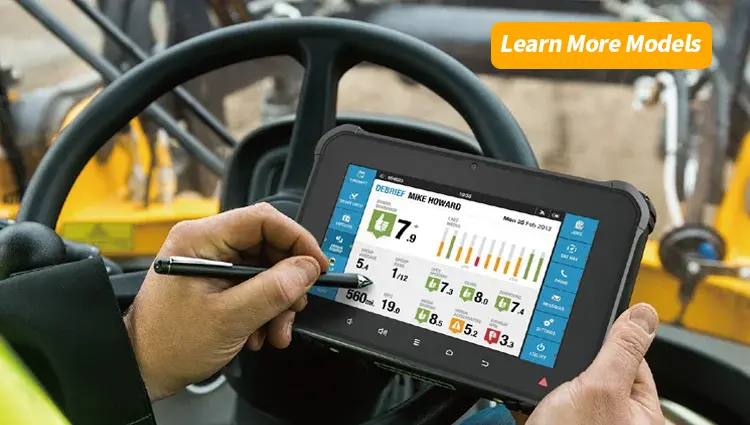Which is the Best Tablet? A Comprehensive Guide for 2024
In today’s digital age, tablets have become essential devices for both work and leisure. With a myriad of options available, finding the best tablet can be a daunting task. This guide will help you navigate the tablet landscape, compare top models, and make an informed decision based on your specific needs and budget.
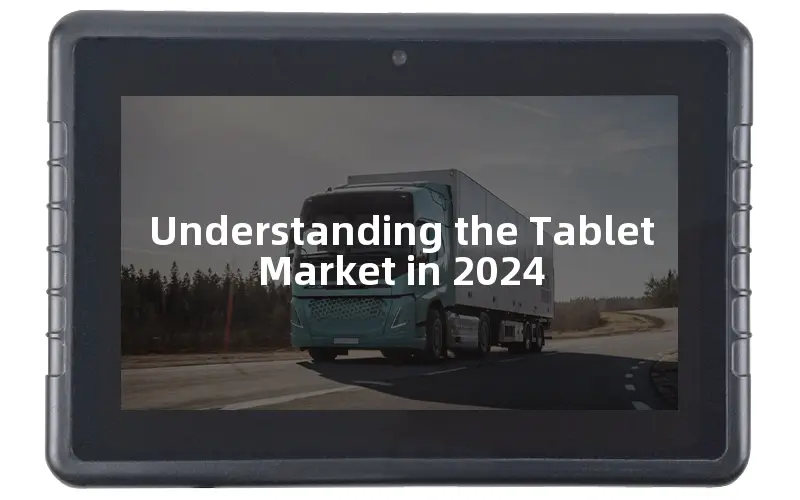
Understanding the Tablet Market in 2024
The tablet market has evolved significantly since the introduction of the first iPad. Today, consumers can choose from a wide range of devices, from budget-friendly options to high-end powerhouses. Major players in the tablet space include Apple, Samsung, Microsoft, and Lenovo, each offering unique features and ecosystems.
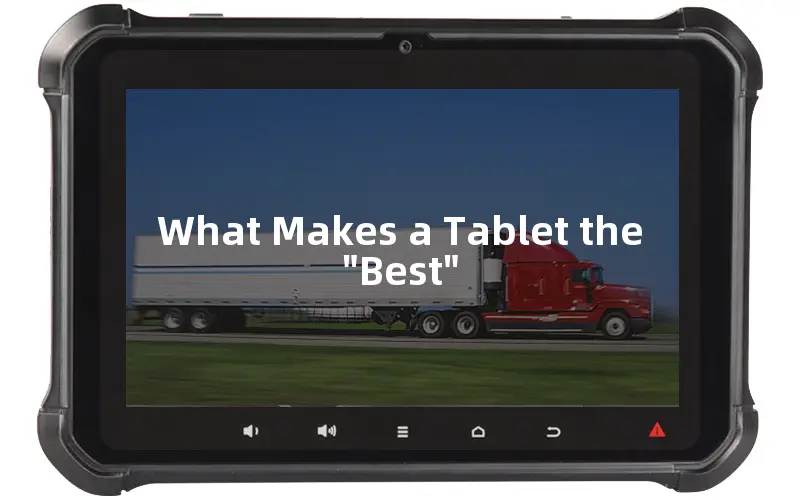
What Makes a Tablet the “Best”?
When determining the best tablet, several factors come into play:
- Performance: Processor speed, RAM, and storage capacity
- Display quality: Resolution, brightness, and color accuracy
- Battery life: Duration of use on a single charge
- Build quality and design: Materials used and overall durability
- Operating system: iOS, Android, or Windows
- Ecosystem and app availability
- Price and value for money
It’s important to note that the “best” tablet can vary depending on individual needs and preferences.
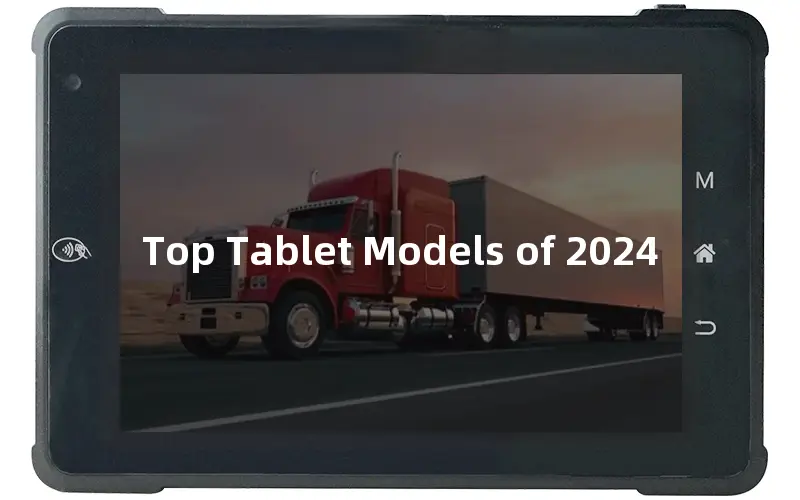
Top Tablet Models of 2024
Let’s explore some of the leading tablets across different categories:
Best Overall Tablet: Apple iPad Air (5th Generation)
The Apple iPad Air strikes an excellent balance between performance and affordability. Key features include:
- M1 chip for laptop-class performance
- 10.9-inch Liquid Retina display
- Support for Apple Pencil 2 and Magic Keyboard
- 5G connectivity option Best Android Tablet: Samsung Galaxy Tab S8 Ultra
The Samsung Galaxy Tab S8 Ultra is a premium Android tablet with impressive specs:
- Large 14.6-inch Super AMOLED display
- Snapdragon 8 Gen 1 processor
- S Pen included
- DeX mode for desktop-like experience Best Budget Tablet: Amazon Fire HD 10
For those on a tight budget, the Amazon Fire HD 10 offers great value:
- 10.1-inch 1080p Full HD display
- Octa-core processor
- Up to 12 hours of battery life
- Access to Amazon’s content ecosystem Best Windows Tablet: Microsoft Surface Pro 9
The Microsoft Surface Pro 9 is ideal for those who need a full Windows experience:
- 13-inch PixelSense Flow display
- 12th Gen Intel Core processors
- Up to 32GB RAM and 1TB storage
- Versatile 2-in-1 design Best Rugged Tablet: Panasonic TOUGHBOOK G2
For those working in challenging environments, the Panasonic TOUGHBOOK G2 offers unparalleled durability:
- MIL-STD-810H certification
- IP65 dust and water resistance
- Intel Core i5/i7 processors
- Modular design for customization Comparing Key Features
When evaluating tablets, consider these crucial aspects:
- Performance: Apple’s M1 chip and high-end Snapdragon processors offer the best performance in 2024.
- Display: OLED and mini-LED displays provide the best visual experience, with Apple’s Liquid Retina XDR leading the pack.
- Battery Life: Most premium tablets offer 10-12 hours of use, with some budget options pushing up to 14 hours.
- Ecosystem: iOS offers the most polished tablet experience, while Android provides more customization options.
- Accessories: Consider stylus and keyboard support for enhanced productivity. Best Tablets for Specific Use Cases
Different users have varying needs. Here are some recommendations:
- For Work: Microsoft Surface Pro 9 or iPad Pro
- For Entertainment: Samsung Galaxy Tab S8 Ultra or iPad Air
- For Creativity: iPad Pro with Apple Pencil or Samsung Galaxy Tab S8 with S Pen
- For Students: iPad Air or Lenovo Tab P11 Pro
- For Kids: Amazon Fire HD 8 Kids Edition or iPad (9th generation) Pros and Cons of Popular Tablet Brands
Each brand has its strengths and weaknesses:
- Apple: Pros – Optimized software, powerful hardware, great app ecosystem. Cons – Higher price, less customization.
- Samsung: Pros – Versatile Android experience, S Pen included. Cons – Software updates can be slow.
- Microsoft: Pros – Full Windows OS, laptop-like performance. Cons – Higher price, fewer tablet-optimized apps.
- Amazon: Pros – Affordable, good for content consumption. Cons – Limited app selection, ads on lock screen. Future Trends in Tablet Technology
As we look ahead, several trends are shaping the future of tablets:
- Foldable displays for increased versatility
- Enhanced AR capabilities for immersive experiences
- Improved integration with smart home devices
- More powerful processors rivaling laptop performance
- Advanced stylus technology for better precision and features Expert Recommendations and Buying Guide
When choosing a tablet, consider the following:
- Determine your primary use case (work, entertainment, creativity)
- Set a budget
- Consider the ecosystem you’re already invested in
- Evaluate the importance of portability vs. screen size
- Check for compatibility with desired accessories
- Read reviews and compare specs of shortlisted models
Remember, the best tablet for you is one that meets your specific needs and fits your budget.
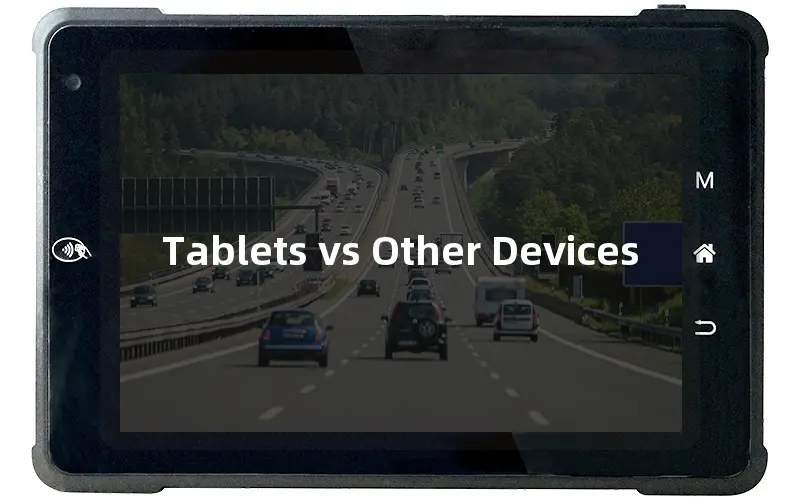
Tablets vs. Other Devices
It’s worth considering how tablets compare to other devices:
- Tablets vs. Smartphones: Tablets offer larger screens and often better battery life, ideal for content consumption and light productivity.
- Tablets vs. Laptops: Tablets are more portable and offer touch interfaces, while laptops typically provide more power and better multitasking.
- Tablets vs. E-readers: Tablets are versatile but e-readers offer a better reading experience with e-ink displays. Frequently Asked Questions
- Q: How often should I upgrade my tablet?
A: Most tablets remain functional for 3-5 years, but heavy users might want to upgrade every 2-3 years to access the latest features. - Q: Are cellular-enabled tablets worth the extra cost?
A: If you frequently work or consume content outside of Wi-Fi areas, a cellular-enabled tablet can be a worthwhile investment. - Q: Can a tablet replace my laptop?
A: For many users, especially with accessories like keyboards, tablets can replace laptops for everyday tasks. However, power users may still prefer laptops for intensive work. - Q: What’s the difference between iPadOS and iOS?
A: iPadOS is a variant of iOS optimized for the larger iPad screen, offering features like improved multitasking and Apple Pencil support. - Q: Are refurbished tablets a good option?
A: Refurbished tablets from reputable sellers can offer good value, but ensure they come with a warranty and check the battery health if possible.
Summary
Choosing the best tablet depends on your specific needs, budget, and ecosystem preferences. The Apple iPad Air stands out as the best overall tablet for most users, offering a balance of performance, features, and price. Android users might prefer the Samsung Galaxy Tab S8 Ultra, while those needing a full PC experience should consider the Microsoft Surface Pro 9. For budget-conscious buyers, the Amazon Fire HD 10 provides excellent value.
Remember to consider factors like performance, display quality, battery life, and ecosystem when making your decision. With the right tablet, you can enhance your productivity, creativity, and entertainment experiences in one versatile device.


